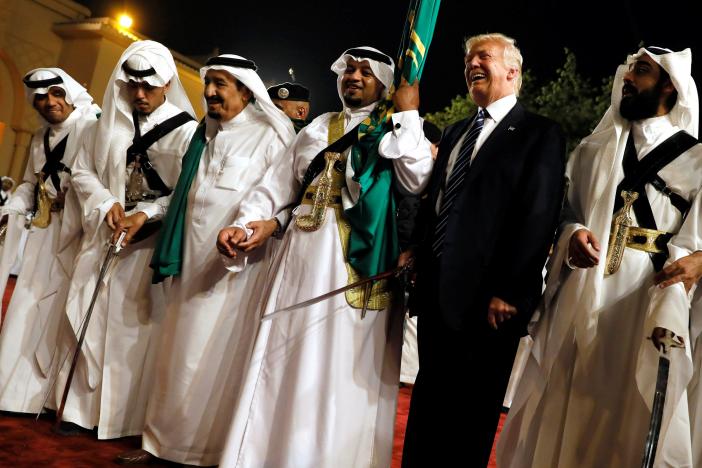Beirut- The Arab-Islamic-US Summit holds many indications in terms of time and location.
In addition to choosing Saudi Arabia as the first stop in US President Donald Trump’s foreign visit, the challenges lie in the fact that it will establish or lay the basis for Washington’s plan in the Middle East after the US retreat in the previous period.
Even if Iran and its role in the Middle East will constitute the main theme at the summit meetings, yet many other things will be tackled too in the meetings that will be held in Riyadh, especially those related to the ongoing crises and wars in some Arab countries.
While Saudi Foreign Minister Adel al-Jubeir considered Trump’s visit to Saudi Arabia as “historic by all standards and reflects the pivotal role of the Kingdom in the Arab and Islamic worlds,” Trump’s aides in the White House described it as “a symbolic review of the determination and a new era in US foreign policy.”
Lebanon’s former Ambassador to Washington Dr. Riad Tabbarah classified the goals and the US summit’s challenges under four main headings.
First heading, said Tabbarah, is activating the role of moderate countries in the region, led by Saudi Arabia and the Arab Gulf after the US absence led to the entry of Iran and its allies and the rise of ISIS. The Second heading is neutralizing the Iranian role that has been expanding in recent years; third, trying to find a solution to the Palestinian cause and finally, the arms deal that is expected to be signed between Washington and Riyadh.
For his part, Director of Levant Institute for Strategic Affairs Dr. Sami Nader said that Trump’s visit to Saudi Arabia is very significant.
“In addition to the fact that the visit comes under the title of what has been announced by Trump and US officials in terms of the principle of reviving old US partnerships and being devoted to the traditional Republican approach, it would also shape or perpetuate the radical shift in Iran’s pre-emptive policy after Washington ended the policy of retreat in the Middle East.”
“Mainly, facing the ‘confrontation of Tehran,’ which is about to implement the ‘Persian Crescent’ in the region at the time the US has begun trying to find a new partnership with Moscow,” Nader added.
In this context, The Washington Times said that Trump White House’s decision is seen as a “rebuke of the Obama administration’s efforts to warm up to Iran and strike a nuclear pact that Trump has repeatedly said he will dismantle, and which Riyadh also opposed as ineffectual.”
Moreover, “Critics claim the visit is designed to offset anti-Muslim rhetoric that played so heavily into Trump’s election campaign and fueled two hamstrung efforts to institute a travel ban from several majority-Muslim countries,” according to the US Washington Times.
According to the US newspaper, the visit breaks recent White House tradition of the inaugural trip being in the Americas or to one of Washington’s European allies.
